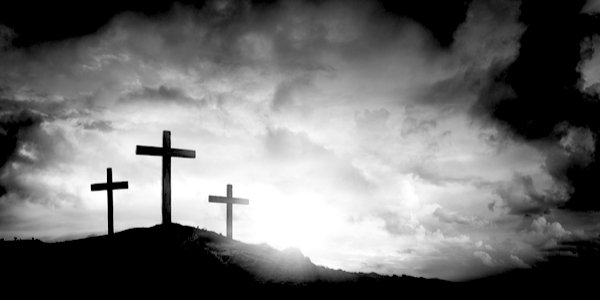IT IS a bit like buying a new car: once you decide on a make and model, you start seeing them everywhere you look. That’s how I feel after reading Jamie Franklin’s incredible new book The Great Return.
Franklin’s central premise is that the freedom and benefits we’ve come to enjoy (and take for granted) in the West cannot survive unless the values that underpin them, which clearly and exclusively arise from Christianity, are acted out in practice; and that they cannot fully be acted out in practice unless the ‘actors’ themselves are grounded in Christianity.
The values in question are that men and women are created equal, and have free will and individual rights, stemming as they do from the Christian belief that men and women are made in the image of God. It was this central tenet, as Franklin convincingly argues, which enabled humans to flourish as never before. The modern take on these things is that
‘[…] we do not need Christianity to solve any of [these problems]. We haven’t needed it for some time, and we certainly don’t need it now. Our civilisation has been built on technological, scientific and political progress that has freed us from the darkness, ignorance and backwardness of the Christian past. We go forward to solve our problems, not backwards.’
Franklin’s rebuttal to this is encapsulated thus:
‘We do not live at the zenith of moral development but on the other side of the Christian revolution which bequeathed to the world a vision of humankind as made in the image of God and destined for transcendent glory. This vision brought about a belief in a moral universe that was reflected in the great cultural, artistic and architectural achievements of medieval Europe. We warm ourselves now on the dying embers of that revolution […]’
What follows is a clinical dissection of the modern position’s falsity. It is an examination of the dominant narrative of the Enlightenment, exposing the lies and distortions which enable the view that science freed men from the enslaving dogma of religion. Franklin goes on to test the assumption that science could replace Christianity, and explores why secularism cannot have anything to say about transcendent values and experiences which we all observe: love, beauty, truth.
Two chapters on ethics look at the implications for morality when the fundamental Christian beliefs no longer ground us, and the implications of some dangerous ideas like nihilism, identity politics, wokeness, and climate activism. On the latter, Franklin is spot on when he says:
‘The climate alarmism narrative is best understood as a reversal of the Judeo-Christian idea of humanity as a mediator between the beasts of the field and the angelic realm of heaven. In this view, men and women are the crowning achievement of God’s creation and are given dominion over the Earth to steward it and to flourish upon it. The climate alarmism narrative counters the Christian view by saying that humankind is not the crown of God’s creation but a cancer upon the Earth which endangers its very existence.’
Abortion, euthanasia, pornography and transgenderism are also topics that come in for examination. Each subject is treated with a logical frankness and sober clarity that is rare today in any discussion of these hot-button issues.
The events of March 2020 and onwards are also put under the same scrutiny:
I speak here of the global shutdown brought about by the fear of Covid-19. This was a phenomenon of immense complexity, but the forces of global technocracy have never been more clearly revealed to the general public. […] Whatever else all this was, it amounted to a profound denial of the legal, political and cultural inheritance that was given to the West by Christianity over a period of hundreds and even thousands of years. […] The globalist forces pushing Covid shutdowns could not have been more opposed to this legacy. Freedom was, of course, the first casualty, as literally billions of people were forcibly locked in their homes.
Where to from here? Franklin suggests that the Church must play both Defence and Offence. Defend the central beliefs:
‘First, there is a God to whom human beings owe their allegiance and worship.’
As for offence:
‘Beauty, Goodness, Truth: these are the names of God. And if we were to return in a significant way to God, we would find beauty, goodness and truth restored to our world as a result.’
As I said at the start, once you see something new, you tend to see it everywhere. The West is riding on the coattails of the Christian legacy. It is content to pretend that our freedoms would have arisen anyway, that our ‘democracy’ is eternal, that our leaders have our best interests at heart while those same leaders show no sign at all of having a belief in the fundamental dignity of humankind based on them being created in the image of God. How could they, given their performance in the year 2020, and thereafter? While everyone is thus pretending, the legacy of Christianity is also pretending: pretending to be immune from having the rug pulled from under it, as people abandon its central tenets.
The West is looting its Christian legacy in the same way as the ‘looters’ in Ayn Rand’s novel Atlas Shrugged stole the vision, drive, determination and intelligence of the industrialists who made the railroads, smelted the steel, mined the copper. They were content to pretend that their vegetables were naturally trucked across the continent in refrigerated trucks; that the lights naturally illuminated their skyscraper apartments; that they could always buy a sweater or a suit in the colour of their choice, regardless of what social justice taxes and laws they might impose on the producers and operators of those mills, factories and railroads.
In Atlas Shrugged, eventually the producers, led by the enigmatic character John Galt, chose to deny the world the benefits of their vision, imagination and production. The results were swift, and disastrous. They set up a new community, hidden from the rest of the world, and had no trouble making it pleasant, full of milk and honey.
Of course, Atlas Shrugged is just a novel, and the author can direct the course of events as she wants. It makes for a great read. We, on the other hand, are analogous to actors on the stage, unsure whether we are in Act I or Act III. We have some agency, in how we deliver our lines, or how much we ad-lib, and with what degree and balance of vigour and tenderness we comport ourselves. We can’t know for sure what events will occur in the next scene, but we can make a guess as to where the author might take the play, and act accordingly.
Jamie Franklin has offered a suggestion, after painstaking analysis of the story so far, as to what course of action we should take:
‘Orientate yourself to what is objectively good and true and beautiful. Reject the culture of death, lies and ugliness. Commit yourself to life, truth and beauty.’
And in an echo of John Galt:
‘[…] schools, universities, hospitals, businesses, theatres, libraries and many other cultural institutions will need to be pioneered from a specifically Christian perspective. […] As the early medieval monasteries preserved the learning of ancient Greece and Rome after the fall of the great empire, so too it may be that the Christian Church must preserve all that has been so good, true and beautiful in our world before it fell to the vandal forces of secular materialism.’
You can read the author’s original Substack here.











